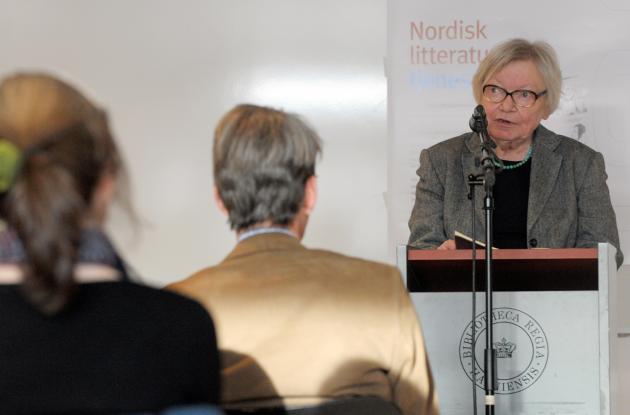Inger Christensen - the poet and the butterfly valley
From the 20th century sprang Inger Christensen, one of Denmark's greatest poets, who never rested on her laurels but constantly explored the boundaries of literature.
Inger Christensen (1935-2009) was a pioneer in Danish literature in the 20th century. As written in one obituary, she imitated no one, not even herself. It sounds paradoxical, but it came from the fact that Inger Christensen never repeated herself, but in each work explored new stylistic and compositional possibilities.
Inger Christensen wrote essays, children's books and novels, but she was first and foremost a poet. Three shining, poetic works from her hand deserve to be highlighted. The first is It, a work that Information's critic Hans-Jørgen Nielsen described in its publication in 1969 as "a word cathedral" and an important source for understanding the upheaval of the 1960s.
It received both the Danish Critics Prize for Literature and The Golden Laurel. Upon reading, one senses that Inger Christensen is a true Poet of the Poets, but the book managed to sell as many as 15,000 copies. Most unusual for poetry. The other two main works are the collection of poems Alphabet from 1981 and the sonnet Butterfly Valley: A Requiem from 1991.
Butterfly Valley: A Requiem
Upon Inger Christensen's death, we received her posthumous papers, including the manuscripts for Alphabet and It. As far as Butterfly Valley: A Requiem is concerned, we already possessed a manuscript, from Inger Christensen's publisher Hans Jørgen Brøndum's papers. It is a printable manuscript similar to the one that was published.
With Inger Christensen's papers, we came into possession of the preparatory work for Butterfly Valley: A Requiem. Here you can read the drafts of the famous lines in the fifteenth sonnet of the master sonnet, whose final and printed version begins with the lines:
“Skywards they swirl, the planet’s butterflies
in the Brajčino valley’s searing midday air,
up from the bitter cavern’s sombre dyesthat mountain scrub hides with a scent so rare
“
